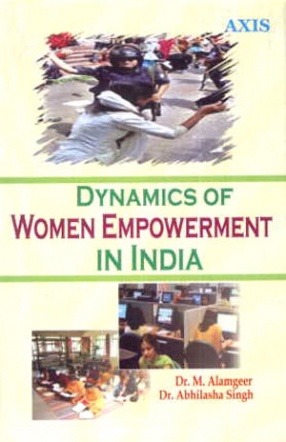Dynamics of Women Empowerment In India
Women empowerment is an important field in contemporary social science research. Women studies have a great value in generating consciousness about multidimensional roles played by women in a society. Its basic objective is to study and collect information on women with a goal to empower them in their struggle against inequality. Further, the status of women and contribution made by them is considered to be the best indicator of social development and progress. But unfortunately, the information on women in different societies is very limited. There is a general perception that women in our society have less opportunity to have higher education and job and are deprived of equal rights to participate in decision making process because they have been made victim in the name of tradition and culture and religious practices. In India, women's social position and the violation of their rights are rooted, among other factors, in decisions made at many points along a spectrum: within households, community leadership structures and national legislatures. The international community is accountable to the world's women for fulfilling the significant commitments it has made to help make empowerment a reality of women's lives. What, then, is women's empowerment? Women's empowerment has five components: women's sense of self-worth, their right to have and to determine choices, their right to have access to opportunities and resources, their right to have the power to control their own lives, both within and outside the home, and their ability to influence the direction of social change to create a more just social and economic order, nationally and internationally. The present study is a modest attempt to examine the empowerment process of women in India and their impact on the status of contemporary women.
Get it now and save 10%
BECOME A MEMBER











Bibliographic information
Abhilasha Singh